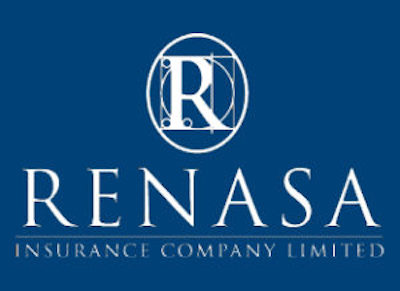Nick Veldman and Kate MacKay, Clyde & Co
All too often the insurance industry (and particularly the claims stage) is described as being unnecessarily contentious. This is particularly due to the fact that certain claims invariably require investigations to be conducted before a determination on policy response can be made.

NICK VELDMAN
CLYDE & CO
KATE MACKAY
CLYDE & CO
The importance of an insurer’s investigations that inform its policy response cannot be stressed enough. Naturally, there are some documents emanating from an investigation (pre-or during litigation) that may well be considered privileged due to their very contents and nature.
However, a common misconception has arisen that all or even most investigations made with a view to reaching a determination on policy response and the quantification of a claim are “privileged”. Thus it is critical for insurers to know what constitutes “privilege” and the test to successfully assert privilege. The term “privilege” can be described as a fundamental legal right that affords litigants a means to resist disclosure of confidential and sensitive material. Often the terms “privilege” and “confidential” are used interchangeably, when in fact they are not the same and have different effects.
In South Africa, privilege is split into two sub-categories:
(1) legal professional privilege and (2) litigation privilege – the latter being relevant in protecting communications between a litigant or his legal advisor and third parties, if such communications are made for the purpose of pending or contemplated litigation, and forms the basis of our discussion.
Within an insurance context, the issue of privilege is often at its most contentious during the claims stage of an investigation into policy response and certainly during the discovery phase of litigation. Privilege disputes often arise because the discovery process is a powerful tool requiring a litigant to discover all documents relating to the issues in dispute, including documents which advance one’s own case or damage the case of one’s adversary. Often attorneys and litigants assert privilege over documents during discovery when, in fact, the requirements of the asserted privilege are not met.
South Africa’s case law on the topic of litigation privilege has developed extensively over the last decade but is often misinterpreted due to the different “tests”
or “purposes” applied by our courts in arriving at a conclusion as to whether a document is protected from disclosure due to privilege.
The “locus classicus” on litigation privilege is arguably considered to be the matter of Competition Commission of SA v Arcerlormittal SA Ltd (680/12) [2013] ZASCA 84, which involved a probe by the Competition Commission into prohibited practices within South Africa’s steel industry. The Competition Commission, through its protected disclosure policy, obtained evidence enabling the prosecution of a prohibited pricing cartel. During the proceedings, the Respondents invoked a discovery mechanism in terms of which it sought discovery of certain documents. The Commission asserted privilege and refused to disclose the requested documents.
During the proceedings, the SCA accepted that two requirements must be met in order to successfully rely on litigation privilege: (1) the document must have been
obtained or brought into existence for the purpose of a litigant’s submission to a legal advisor for legal advice and (2) litigation was pending or contemplated as likely at time.
Looking to the first requirement, particularly the “purpose”, there remains some uncertainty in South African law as to whether documents prepared for litigation must be submitted to legal advisers as their sole, substantial, definite or dominant purpose. The SCA found that the “purpose” of a document is determined by reference to the person under whose direction it was produced or procured and reaffirmed the position that the test is a fact-bound enquiry, requiring an assessment on a case by case basis, to analyse the intention of the person who procured the document.
“The SCA found that the “purpose” of a document is determined by reference to the person under whose direction it was produced or procured”
More recently, courts locally and abroad have clarified certain aspects of litigation privilege which, when applied to the context of insurance matters, provide useful
guidelines for insurers for purposes of pre-emptively protecting themselves from unnecessarily being ordered to disclose documents and thus opening themselves up to exposure on various fronts.
SOME OF THE MORE RECENT PRIVILEGE DECISIONS
HAVE FOUND THAT:
• Privilege is not something that is simply to be had;
• The mere internal appointment and/or commissioning of an investigation or report (whether by a loss adjuster, a surveyor or internal investigator) does not in itself attract privilege; • Vague statements as to privilege and marking documents as “confidential” or “privileged” will not assist in passing muster for the requirements outlined by the courts;
• Those individuals commissioning reports or investigations should carefully consider a report’s purpose when instructing an expert or surveyor, and must bear in mind the factual test applied by courts in the circumstances;
• In the context of the second requirement for litigation privilege, insurers need to take heed and tread lightly where an insurer engages with an insured in a cooperative and amicable spirit, as this may be considered as grounds upon which a court will find that the parties had not contemplated litigation. Naturally, this could prove problematic, as insurers often require the cooperation of the insured and must adopt a fair approach in their dealings with its insureds at all times. Although it will ultimately turn on the facts of a particular case, here are some practical guidelines for insurers to have a fighting chance in upholding litigation privilege:
• Those individuals instructing experts and/or surveyors should consider recording the purpose of the reports (eg. for legal review) or investigations accurately in instructions, particularly if it may be subject to any doubt in the future;
• Experts and/or surveyors should be briefed accurately and prepare their reports on an objectively justifiable basis with reference to the facts and avoid speculation;
• Surveyors, loss adjustors and internal investigators should be informed to not express an opinion outside of their field, and even more so, they should not make
policy recommendations, unless expressly instructed to do so;
• All reports or investigations should be prepared with a clear understanding that the drafter may be cross-examined in court. This also applies to claims handlers and their internal reports up and down the line;
• Pay attention to early indications where litigation is foreseen and involve the legal department or instruct attorneys sooner rather than later;
• Where a surveyor or loss adjuster is appointed by an attorney, subsequent written communications between the surveyor, attorney and the insurer will generally be
regarded as privileged by our courts.


